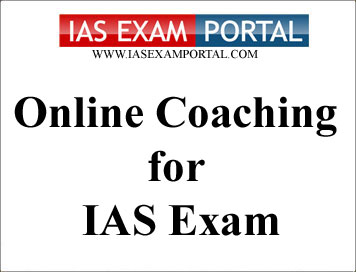(MCQ) IAS PRE GS Online Coaching : Polity - "Citizenship in India"
Sample Material of Our Online Coaching Programme
(MCQ) Polity: Citizenship in India
1. Consider the following statements.- Asylum is the legal protection granted to people in any country who are afraid to return to their home country.
- Domicile means to stay in a country with the intention of making it his or her permanent home.
- Expelling an alien is called deportation.
- Resident is one who resided in the country for certain number of days.
Which of the above statement is / are correct.
-
1 only
-
1, 2 & 4 only
-
2 only
-
All of the above
2. Consider the following statements.
- The provisions relating to citizenship are contained in Articles 5 to 11 in Part II of the constitution of India.
- The constitution of India provided a single citizenship for the entire country.
- Since 2003, dual citizenship is allowed by Indian law that is called overseas citizens of India.
- A non-resident Indian is a citizen of India but has not resided in India for the required number of days.
Which of the above statement is / are correct.
- 1 only
- 1 & 4 only
- 2, 3 & 4 only
- All of the above
3. Consider the following statements.
- Those born in India on or after 26th January 1950 but before 1st July 1967 are citizens of India by birth, irrespective of the nationality of their parents.
- Those born in India on or after July 1987, are considered citizens of India only if either of their parents is a citizen of India at the time of their birth.
- Those born outside India on or after 26th January 1950 but before 10th December 1992 are citizens of India by descent, if their father was a citizen of India at the time of their birth.
- Any question related with citizenship, shall be determined by the concern state in which the citizen have its voter ID.
Which of the above statement is / are correct.
- 1 only
- 2 only
- 3 only
- 4 only
4. Which of the statement is incorrect.
- The facility of overseas citizenship of India was made available to all the person of Indian origin of any country.
- Dual citizens do not have voting rights.
- Neither can they be elected to Public Office nor they eligible for defence job.
- Dual citizens do not required visa for travel to India.


